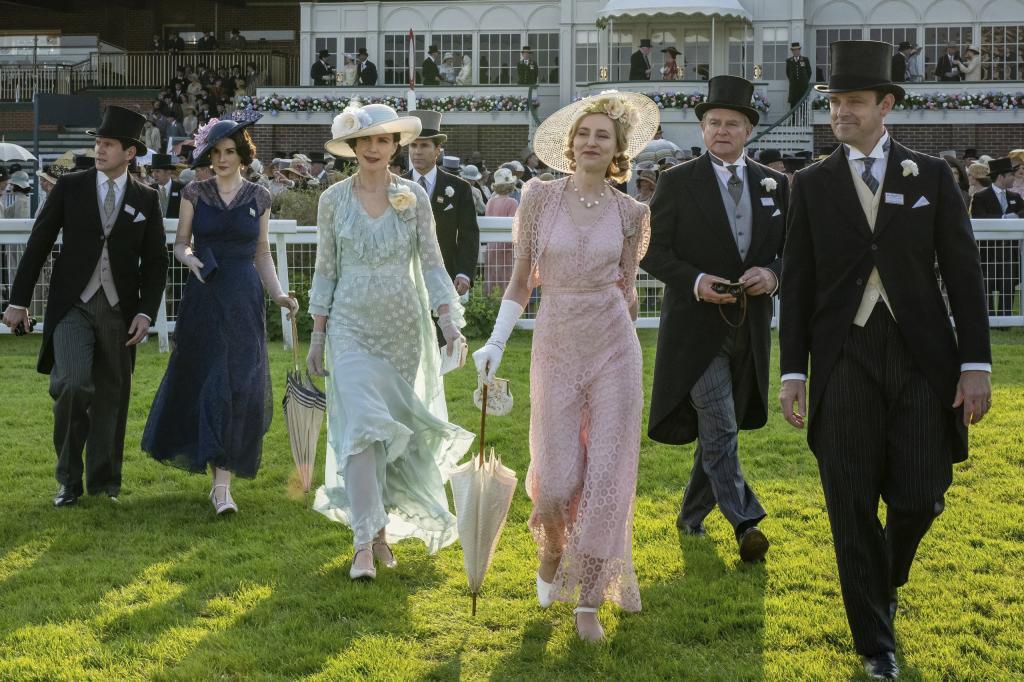In 2010, when Julian Fellowes proposed that the UK delve into the intimacy of a family of British aristocrats from the early 20th century, TV executives wondered who on earth would be interested in what happened to the Crawleys, locked in a castle in the middle of the English countryside. The society that had given birth to the Brönte sisters, Jane Austen, or E. M. Forster rejected the period narrative, palace intrigue, and impudent love affairs. Or maybe not. Perhaps it was just the prejudice of a handful of executives.
Here we are 15 years later bidding farewell to Downton Abbey after becoming a mass phenomenon like few others in the islands. The British series is the most non-American fiction nominated in Emmy history: it has won 15 awards, in addition to three Golden Globes. Its audiences on the other side of the Atlantic exceeded PBS's expectations: its last episode, in 2016, reached nearly 10 million viewers. Now Downton Abbey: The Grand Finale, the third movie that completes the series and premieres in theaters next Friday, is the definitive closure to the Crawley dynasty, a change of era and the entry into the new world of the 1930s. "Our intention was to move from the old to the new world, and we have done it. This is a big part of my life and my career, I wanted to say goodbye to all of them, and now I have. In a way, it's sad, but it's time for it to end," argues Julian Fellowes, seated in a small room at the Claridge's hotel in London that could well be a room in the Highclere Castle where the series and movies were filmed.
Kate Winslet: "I don't feel the need to be a queen or to attract attention"
Juliette Binoche: "We live in a world of crazies, of mentally ill, of cruel, excessive, and horrible egos, and therefore, it is urgent to reposition ourselves with art"
This latest installment has everything that always made Downton Abbey genuine: the dissection of British aristocracy, the secrets that implode surreptitiously, the relationship between servants and masters, the beautiful landscapes of Hampshire county, and Violet Crawley - the iconic character played by the late Maggie Smith - in a grand portrait from which she observes everything. "She is our iconic figure, the leader of Downton Abbey. We all have deceased parents or grandparents who continue to live on in family conversations long after their death. That's Maggie for us," explains Fellowes.
"When millionaires take someone in their rockets to the Moon, it's typical of the 'golden age' of the last century"
But in addition to the distinctive feature of period drama, The Grand Finaleintroduces new elements: the exclusion that divorce imposed on high society, the ambition for money surpassing honor, the new conception of cities, the breaking of the master-servant model, and, why not, also the poisoned look towards the upper classes. An element that the fiction has been exploring - though anchored in our present, with projects like The White Lotus or Succession - and to which Downton Abbey also points in its finale. "I think in the 1920s and 30s, they didn't hate them as much, perhaps due to the Great Depression that made it difficult for many wealthy people," starts Fellowes. And continues: "Now England lives in contradiction. Everyone hates the rich and those who are successful, but what they desire most is to be rich and successful. People find something satisfying in that turn of fortune's wheel and maybe it satisfies a tacit desire for revenge from those who feel they were not born lucky and have had no advantage in life."
Perhaps unconsciously, the success of Downton Abbey has also been based on that pillar. What attracted the audience, beyond the soap opera, was to see those aristocrats in trouble. Thus, the mold of what the Victorian novel had been, from which the TV drama directly draws, was broken even though it unfolds during the reign of Edward VIII. It is no longer so important to empathize with those characters; now we want to see them suffer, even if only for a while and end up triumphing. "Surrendering to that is an impediment to your own success. When I talk to drama students or future screenwriters, I always tell them: 'Don't build a wall between you and successful people. Not if you want to belong to that group.' But clearly, many do."
And now, let's make the journey in the opposite direction, towards the present. How much does Downton Abbey say about us? Has our society changed? "We have changed in some aspects, but not in all," points out Fellowes, who is now immersed in the fourth season of The Gilded Age - broadly speaking, the same story, but in New York. "When Richard Branson takes someone in his rocket to the Moon, it's a typical activity of the gilded age. I think the US is still under the yoke of the power of success, and in Europe, some things are quite constant," he concludes.
